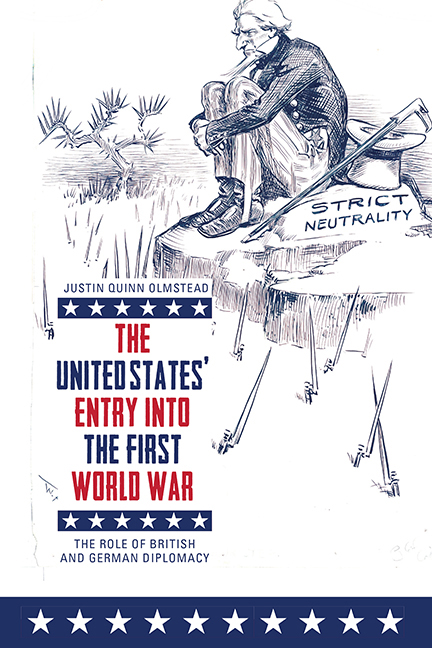Book contents
Summary
On 2 April 1917, United States President Woodrow Wilson delivered his War Message to a special session of the 65th Congress. In his address, Wilson carefully laid out the reasons why he believed it was necessary to ask for a declaration of war against Germany. Chief among his reasons was the unrestricted use of the submarine and the inhumanity that came with it, the legalistic issues the US had with submarine warfare, and the desire for a lasting peace. By 7 April, Congress had voted overwhelmingly to join the war, and the President had signed the War Resolution bringing the country into the war as an associated power, not as a formal member of the Entente Allies.
After two and a half years of a war that had raged in Europe and in the world's oceans, President Wilson had finally decided to bring the United States into the war. The threat of further unrestricted submarine warfare on the part of the Germans and the ensuing Zimmermann Telegram asking for Mexican support seem to be the obvious reasons for Wilson's decision to change policy. But there is more to policy changes than implied threats, and in the case of American entry into the First World War it is clear that the warring sides in Europe were looking for a new ally who could break the deadlock.
From early in the war, the Foreign Offices of Britain and Germany had turned to diplomats in their attempts to shape US President Wilson's decisions. At the heart of First World War diplomatic exchanges were conversations and relationships that developed between the foreign ministers, ambassadors, and special envoys. It was these individuals who carried the diplomatic load, not the individual leaders of each nation – though all clearly played a part. Therefore, an analysis of diplomacy and foreign policy is crucial to understanding America's entry into the war.
When Wilson requested that Congress declare war on Germany in April 1917, Great Britain and her Allies (of primary importance are France, Russia, and Italy) had clearly won the battle for American support. But the American decision to join the war against Germany was complex, and the result of years of diplomatic activity by both belligerent camps.
- Type
- Chapter
- Information
- The United States' Entry into the First World WarThe Role of British and German Diplomacy, pp. 1 - 4Publisher: Boydell & BrewerPrint publication year: 2018

